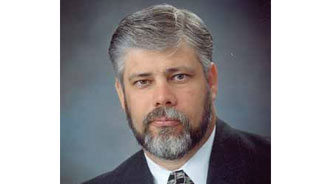ARA Wants More Licensing Requirements in the Recovery Industry

By subscribing, you agree to receive communications from Auto Remarketing and our partners in accordance with our Privacy Policy. We may share your information with select partners and sponsors who may contact you about their products and services. You may unsubscribe at any time.
IRVING, Texas –
For many years, the recovery industry has flown under the radar. Thanks to recently published articles like “Repo Madness” the repeated negative news about lenders and the bad economy has moved the recovery industry into the spotlight.
The majority of recovery agents liked the anonymity and never really had to step into the limelight or talk to our state or federal representatives about their profession. Years ago, I was in a legislative session with some agents in Texas trying to get a license law passed. The question was asked, “Would Dog the Bounty Hunter qualify for a license under this proposed law?”
At that moment, it became very clear that legislators and their aides know very little about the recovery industry and what we really do. Their perception of us is based on terrible and sensationalized media headlines and what they see on reality TV.
Now, more than ever, we must present ourselves as professionals and seek support from those among us who can represent our industry in a true light. There are many other industries who have similar, if not worse, image issues and combat it by joining forces. This is an area where a united industry would be a valuable asset.
The American Recovery Association is taking a leadership role in this endeavor. Our new ARA president Joe McOwen tasked ARA past president Jim Hall to form a committee of members with legislative experience to explore ways to be proactive in this arena. Hall will seek other leaders inside the recovery industry to serve as consultants for the cause.
For example, Joe Taylor of RISC is seasoned in dealing with the Florida and South Carolina legislature and the Florida’s Department of Agriculture (the supervising authority in Florida) and he has volunteered to assist the committee. The committee is challenged to identify other associations and organizations to join forces with to increase our presence in the legislative process. The committee will work with state recovery associations and agencies that express a desire to pursue a licensing solution.
Subscribe to Auto Remarketing to stay informed and stay ahead.
By subscribing, you agree to receive communications from Auto Remarketing and our partners in accordance with our Privacy Policy. We may share your information with select partners and sponsors who may contact you about their products and services. You may unsubscribe at any time.
It is important to have our voices heard as we express our concerns and strive for solutions to the issues before us.
It took years before Louisiana passed a self-help law with important qualifications an applicant had to meet before he/she could receive a license. ARA members Joan Hudson, Millard Land and Mary Jane Hogan testified in front of the Louisiana Senate to help get the law passed. They explained why only members of the acknowledged trade associations should even be considered for the self-help license and focused on consumer protection. They showed how without training and education the recovery process can lead to dangerous acts that can put the consumers and recovery agents in harm’s way.
South Carolina is expected to join the ranks of states that will have a licensing law for the recovery agents. Ideally, every state would follow in Louisiana’s footsteps and pass licensing laws like this.
It is crucial to educate legislators that recovery agents, as a whole, are not the ones causing the problems and we care about education and certification. The extension of this belief is we are all for consumer protection. There are very few states that even offer a repossession license, much less any requirement in acquiring one, and this needs to change.
I encourage professional recovery agents to get involved on their state level to get more license requirements.
Les McCook is the executive director of American Recovery Association.


